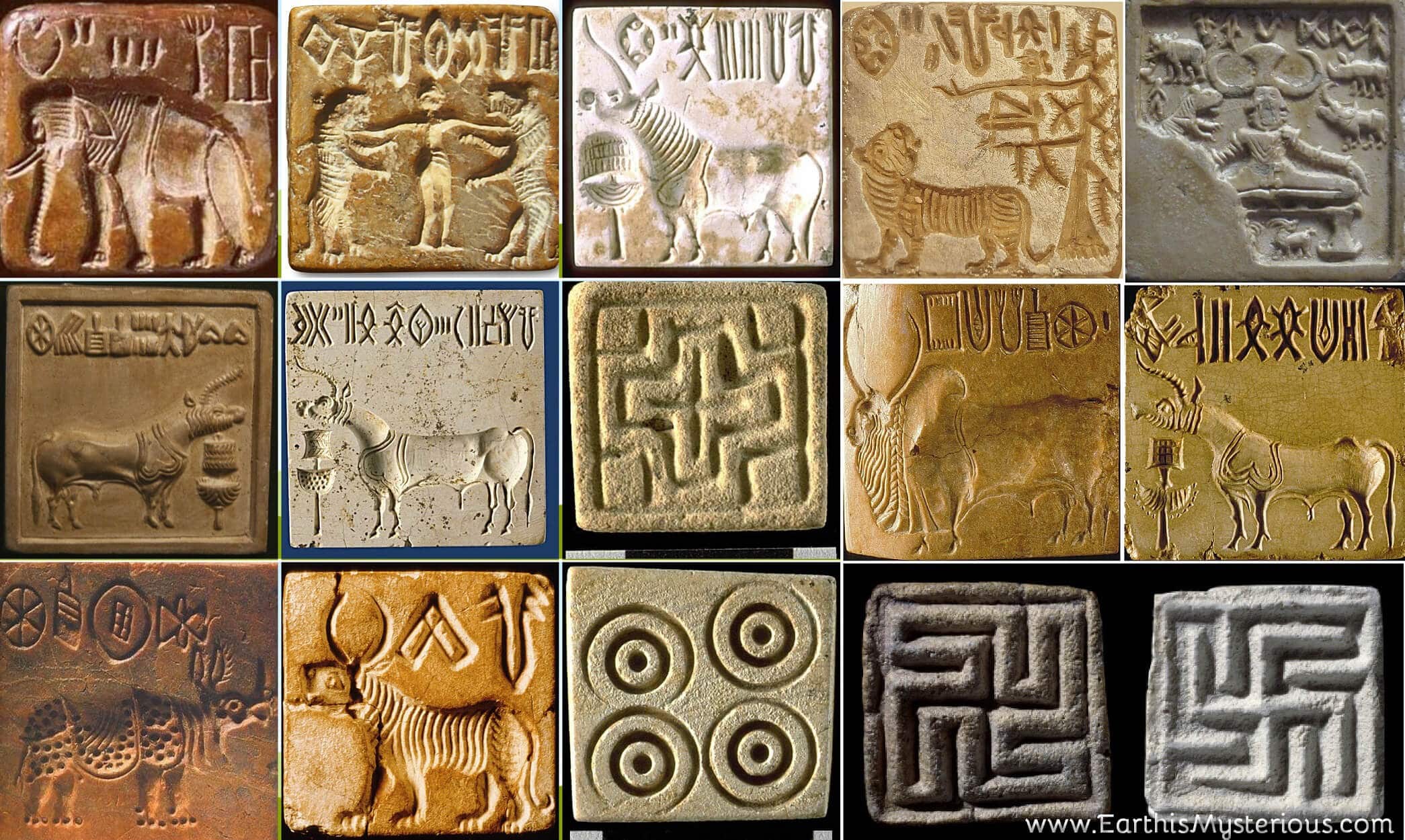 |
| A Map of The Indus Valley Civilization at its Peak, C. 2600-1900 BCE. |
In Bresnan's Awakening, An Introduction to the History of Eastern Thought, chapter 1, India Before the Vedas, focused on the history of the Indian subcontinent, its various ethnic groups, theories surrounding how it all came to be, and the caste system. It only barely touched up on the undecipherable script of the Indus Valley Civilization. On the flip side, the video titled Indus: An Unvoiced Civilization covered topics such as geography, engineering, and history. However, it all revolved around the Indus Scripts. Its title suggesting a muted voice of the Indus, and the content covering in-depth information about such scripts.
Video Versus Text
The video did an amazing job at providing great information relevant to its title. It suggests the Indus to be an 'unvoiced' civilization, and really drives the point home. It addresses expressive points of the Indus such as arts and pottery, describing and inspecting weaponry, children's toys, architecture, and more. However, it revolves around the idea of their lost language. Linguist Professor Asko Parpola gave an incredible part of the video, giving his opinions and showing his database of the Indus scripts. According to him, the Indus scripts are logosyllabic, but appears pictographic like the Chinese or Egyptians. 386 different characters were used in Indus writing. Professor Parpola also gives a theory that the newly discovered sign board in Dholavira relate to authority figures.
 |
| A Collection of Seals From the Indus Scripts, C. 2600-1900 BCE. |
From the text, I found the ending section most interesting, more interesting than the undeciphered scripts and marvelous engineering. It addressed the caste system, a social status class division system. This wasn't explained deeply in the video, it was only brushed upon (Indus 35:20). The text informed me of the hierarchy, the "Kshatriya", "Brahmana", and "Vaishyas". The Vaishyas "was the caste of the commoners, the artisans and tradesmen." (Bresnan 11). Kshatriya were the wealthy, dominant, warriors and aristocratic. They were at the top, but "Sharing top honors with the Kshatriyas, in fact enjoying an even higher status, was the Brahmana caste; these were the priests..." (Bresnan 11). These three castes occupied the top class, creating the title arya-varna. What struck me the hardest was the next section, titled "The Brahmin Caste". It talked about the Brahmana, which were a special group of individuals like priests or shamans, in charge of the rituals and traditions in the community.
:max_bytes(150000):strip_icc()/__opt__aboutcom__coeus__resources__content_migration__treehugger__images__2018__08__leafcutter-ants-2a5be8ea35ac44ebbd64e88568edeef9.jpg) |
| Leafcutter Ants Taking Their Harvest Home. |
The text then further supports the background of the Brahmana with a story marking the correlating relationship between ants with humans, and humans with gods. It really made me ponder just how similar we truly are to ants. If it is widely believed, then we are no more than ants to the gods. Just minding about our business, hoping to contact gods and convince them to help us by wielding the forces of nature. Like ants, the Brahmin had the job of making contact with the gods through sacrifices and offerings. This really changed my perspective on this type of activity. At first, I thought in instances like this there would be no way that Brahmin would be able to keep up the act, pretending like every punishment and support from 'god' was from his interactions with him. That just seems absurd. However, "It is what the people believed that counts; belief, not necessarily truth, is what inspires action." (Bresnan 15). Believing in something can be hard depending on what it is. But, if you convince yourself and those around you, the belief becomes the truth. The masses of course believed that every single contact with god was through the Brahmin. Everyone kept up this act, while not even knowing it's an act, thus giving the Brahmin their power, privilege, and high status.
Works Cited
Alex, Bridget. “Why We Still Can't Read the Writing of the Ancient Indus Civilization.” Discover Magazine, Discover Magazine, 9 May 2020, www.discovermagazine.com/planet-earth/why-we-still-cant-read-the-writing-of-the-ancient-indus-civilization.
“India Before the Vedas.” Awakening: an Introduction to the History of Eastern Thought, by Patrick S. 1937- Bresnan, Routledge, 2018, pp. 1–16.
“New Mathematical Method Shows How Climate Change Led to the Fall of an Ancient Civilization.” RIT, www.rit.edu/news/new-mathematical-method-shows-how-climate-change-led-fall-ancient-civilization.
Nishiwaki , Yoshinori, et al. Indus : The Unvoiced Civilization. Performance by Donna Burke, Indus : the Unvoiced Civilization., Princeton, NJ : Films for the Humanities & Sciences, ©2003, 2000, www.worldcat.org/title/indus-the-unvoiced-civilization/oclc/53055079.
Strauss, Ilana. “Humans Are More Like Ants Than Lone Wolves.” Treehugger, www.treehugger.com/humans-are-more-ants-lone-wolves-4854649.



No comments:
Post a Comment